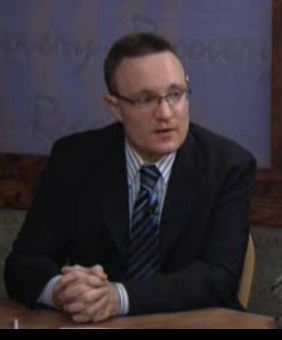Video, Radio, Web
Ask the Expert
Each month (April - September) Recovery Month features an expert in Ask the Expert, where you can get answers to your questions about the topics covered in the latest 2013 Road to Recovery program. Submit your questions using our anonymous online contact us system, and answers from our expert will be posted by the end of the month.
Year:
2013
2012
2011
2010
2009
Month:
April
May
June
July
August
September
-
(Premiered: 04/06/2011)

Ask the Expert:
Wendy R. Greene, M.D., F.A.C.S. is the Assistant Director of Trauma and Critical Care and the Chairman of the Quality Improvement and Management Committee for Howard University Hospital and is an Assistant Professor of Surgery for the Howard University College of Medicine.
Preventing mental and substance use disorders is critical and early intervention and treatment is essential to avoid devastating impact and reduce the high cost to society. What really works in prevention and early intervention? How can prevention and early intervention strategies and services be coordinated more effectively with treatment and recovery services? What role does prevention and early intervention play in a recovery-oriented system of care? What happens when someone is identified with a mental or substance use disorder? What should happen to ensure people can access the help they need? How can schools, health and justice systems, and other institutions in our society be more actively engaged in the practice of prevention and early intervention? This show will address these pressing issues, focusing on creating communities where individuals, families, schools, workplaces, and communities take action to promote behavioral health.
-
(Premiered: 05/04/2011)

Ask the Expert:
Dr. Bradley Karlin is the National Mental Health Director for Psychotherapy and Psychogeriatrics for the U.S. Department of Veterans Affairs (VA).
In the nine years since September 11, more than two million U.S. troops have been deployed to Iraq and Afghanistan. Although most returning service men and women do not return with a service-related condition, a significant proportion does return with post-traumatic stress disorder, depression, traumatic brain injury, and substance use problems. Substance use and mental disorders can also be seen among some of the service men and women who have never been deployed: The rate of suicide within the Army National Guard and Reserves doubled between 2009 and 2010—and half of those men and women had never deployed to a combat zone. Too many service members die from suicide, and too many are homeless. Military deployment and trauma-related stress can have a major impact on returning service men and women and their families, making the need for treatment and recovery in behavioral health an urgent national priority. Yet, many either are not interested in or are unable to access the care they need, and the same can be said of their spouses and children. This show will examine the serious issue of need in these sectors by exploring the nature and scope of these substance use and mental disorders, the strengths and weakness of the system to address these problems, and the efforts underway to improve our Nation’s ability to meet its obligations to service members and their families. Specific improvement strategies are highlighted including collaboration and coordination that increases access to care; community-based solutions that foster access to evidence-based prevention, treatment, and recovery support services; and development of the behavioral health workforce to better serve the military and their families.
-
(Premiered: 06/01/2011)

Ask the Expert:
Keith Humphreys, Ph.D is a Professor (Research) of Psychiatry and Behavioral Sciences, a VA Senior Research Career Scientist and a CHP/PCOR associate.
While the first steps toward long-term recovery are major achievements for individuals with substance use and mental disorders, the next challenge is learning how to sustain recovery over time. Long-term recovery requires addressing the factors and conditions that contributed to the dependence in the first place. For many, recovery involves healing relationships, developing improved life skills, and attaining “emotional sobriety,” which makes it possible to contribute to their families and communities in healthy and meaningful ways. This show will examine the elements that contribute to long-term recovery and how advances in improved collaborations, service coordination, and recovery management have led to more effective systems of support. Effective models for providing this support, such as recovery-oriented systems of care (ROSC) and peer-to-peer support, will be discussed, along with the resources individuals can access to assist them at every stage of recovery.
-
(Premiered: 07/06/2011)

Ask the Expert:
Richard G. Frank, Ph.D., is the Margaret T. Morris Professor of Health Economics in the Department of Health Care Policy at Harvard Medical School.
With the passage of the Patient Protection and Affordable Care Act, commonly known as health reform, important and far-reaching changes are underway in our Nation’s health system. The goals of health reform are to expand coverage, provide more affordable and higher quality care, promote health and wellness, and increase access to services for substance use and mental disorders. In addition, changes will include the adoption of electronic health records, allowing the comprehensive management and secure exchange of health information among insurers, primary care practitioners, general practitioners, pharmacists, and those in specialty fields such as pediatrics, cardiology, oncology, orthopedics, and treatment and recovery in behavioral health. There are many questions about what health reform changes will take effect and when the changes will be implemented. This show will provide information to help answer these questions and suggest other means for consumers to stay informed and determine what health reform will mean to them.
-
(Premiered: 08/03/2011)

Ask the Expert:
Barbara L. Kornblau, JD, OTR/L, FAOTA, DAAPM, ABDA, CDMS, CCM, CPE, served as the Dean of the School of Health Professions and Studies at the University of Michigan - Flint.
Persons with disabilities in our society experience substance use and mental disorders at relatively high rates, yet special challenges exist for those who want to access and use treatment and recovery support services. The Americans with Disabilities Act prohibits discrimination against persons with disabilities, but how does this protection apply in providing treatment and recovery services for individuals with substance use and mental disorders? What are the barriers to access disabled persons face and how can these barriers be overcome? This show will explore a range of issues associated with treatment and recovery in behavioral health for disabled persons, including barriers to access, differences in outcomes, and options to diminish the incidence of discrimination.
-
(Premiered: 09/07/2011)

Ask the Expert:
H. Westley Clark , M.D., J.D., M.P.H., CAS, FASAM, Director of the Center for Substance Abuse Treatment under the Substance Abuse and Mental Health Services Administration, U.S. Department of Health and Human Services
Trauma is a universal experience of people in treatment and recovery for substance use and mental disorders. Trauma is a widespread, harmful, and costly public health problem. Trauma occurs as a result of violence, abuse, neglect, disaster, war, and other emotionally destructive experiences. Similar to substance use and mental disorders, trauma can affect anyone regardless of age, gender, economics, race, ethnicity, geography, disability, or sexual orientation. People can overcome traumatic experiences with appropriate support and intervention; but left untreated, trauma significantly increases the risk of substance use and/or mental disorders, chronic physical diseases, and early death. The effects of trauma place a heavy burden on individuals, families, and communities and create challenges for all public institutions, jails, prisons, and service systems. This show will examine the need to address trauma in the delivery of substance use and/or mental disorders treatment and recovery services, how to screen and identify individuals with trauma-related problems, and provide suggested interventions and support services. Discussion will include what interventions work, how to collaborate, and how to provide a full range of support services to ensure a full and sustained recovery.